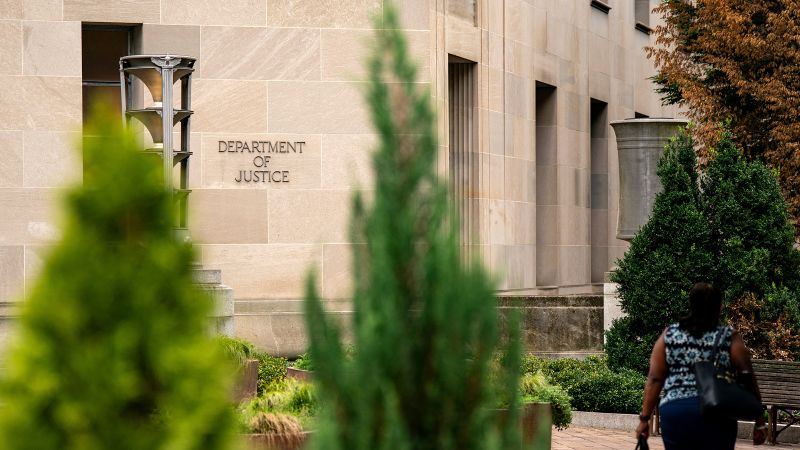The extensive drug probe originating from a seemingly trivial car accident in a small Tennessee town points to a much larger and more sinister network of drug trafficking involving powerful cartels. This investigation, which initiated several years ago, illustrates how interconnected and widespread the issue of drug trafficking is across borders, highlighting the aggressive measures employed by law enforcement to dismantle these organizations. The crash involved two drug dealers who, in panic, discarded a hardened protective case containing methamphetamine. This careless act led authorities to delve deeper into their activities and ultimately uncover a significant operation that extends back to Mexico’s violent cartel scene.
The culmination of this investigation was recently marked by the unsealing of indictments against several high-ranking members of the United Cartels, including their leadership and enforcers. Targeting the pernicious influence of these organizations has become imperative, as they represent not only a drug distribution threat but also a direct risk to local communities within the United States. The indictment includes three leaders and two key enforcers of the United Cartels, a powerful player often overshadowed by the more notorious Jalisco New Generation Cartel.
The stakes in this operation have been raised significantly, with the U.S. government offering a staggering reward of up to $10 million for information leading to the arrest of Juan José Farías Álvarez, better known as “El Abuelo” or “The Grandfather.” His cartel is believed to be responsible for a large flow of methamphetamine from Mexico into the United States, exacerbating the crisis of drug addiction across American towns and cities. The drug trafficking cases reveal the unfolding story of how these substances travel from their production sites in criminal enterprises in Mexico to American streets, often bringing about violence and chaos along their path.
In a recent statement, Matthew Galeotti, the acting assistant attorney general overseeing the Justice Department’s criminal division, highlighted the local impacts of such international drug networks. He emphasized that violent criminal activities originating from foreign cartels pose significant risks to American communities, asserting that the consequences of these operations directly lead to law enforcement confrontations within the U.S. This criminal landscape illustrates a dire need for effective law enforcement and collaboration between U.S. and Mexican authorities to combat the threat posed by drug cartels.
The United Cartels, primarily operating in Michoacán, Mexico, is a conglomeration of smaller cartels that have worked under different leaders in various capacities. It may not be as infamous as some of its counterparts, but its capabilities as a prolific producer of methamphetamine have placed it firmly on the radar of U.S. law enforcement. Recognizing the serious threats posed by these entities, the U.S. has designated several such groups as foreign terrorist organizations, an acknowledgment of the extent of the chaos they can unleash on society.
Revisiting the case’s trajectory, the investigation threads back to 2019 when two dealers were involved in that fateful accident. The subsequent discovery made by local law enforcement set off a chain reaction involving surveillance and wiretaps, gradually leading them to a broader drug distribution network. Significant developments occurred in early 2020, culminating in a dramatic incident in which a low-level dealer attempted to flee police, resulting in an armed confrontation that underscored the volatile nature of these situations.
Evidence gathered during the investigation revealed that the drugs were flowing from Mexico, with connections made between Eladio Mendoza, a suspected local drug ring leader, and high-ranking individuals within the United Cartels. Stashed away in a tractor trailer, authorities discovered an enormous cache of meth during searches of Mendoza’s linked properties. It was revealed that Mendoza fled to Mexico, only to meet a fatal end at the hands of cartel leaders angered by losses sustained during U.S. law enforcement actions.
The efforts made by U.S. authorities have not been isolated or ineffective; many successes have stemmed from cooperative relations with Mexican law enforcement. The current administration has witnessed an increase in cooperation, leading to significant extraditions of cartel leaders back to the U.S. for prosecution. High-profile figures, including the notorious Rafael Caro Quintero, have been handed over, indicating a shift in the partnership aimed at tackling the drug crisis.
Overall, the investigation serves as a glaring reminder of the persistent shadow cast by drug cartels on the fabric of American society. The challenges faced by law enforcement require continued vigilance and collaboration, not only to disrupt the distribution networks but also to ensure the safety and security of local communities grappling with the devastating effects of drug trafficking.











